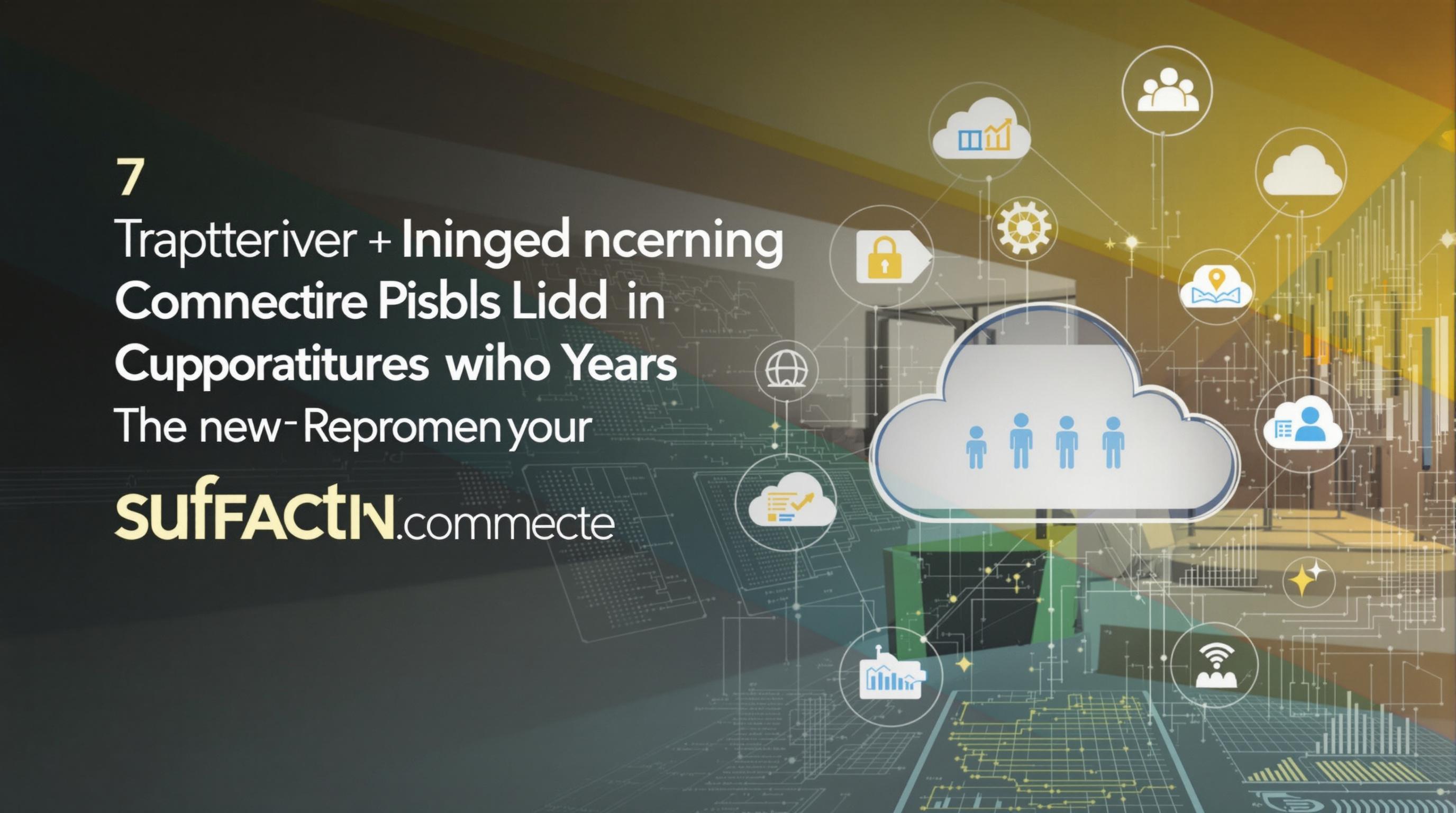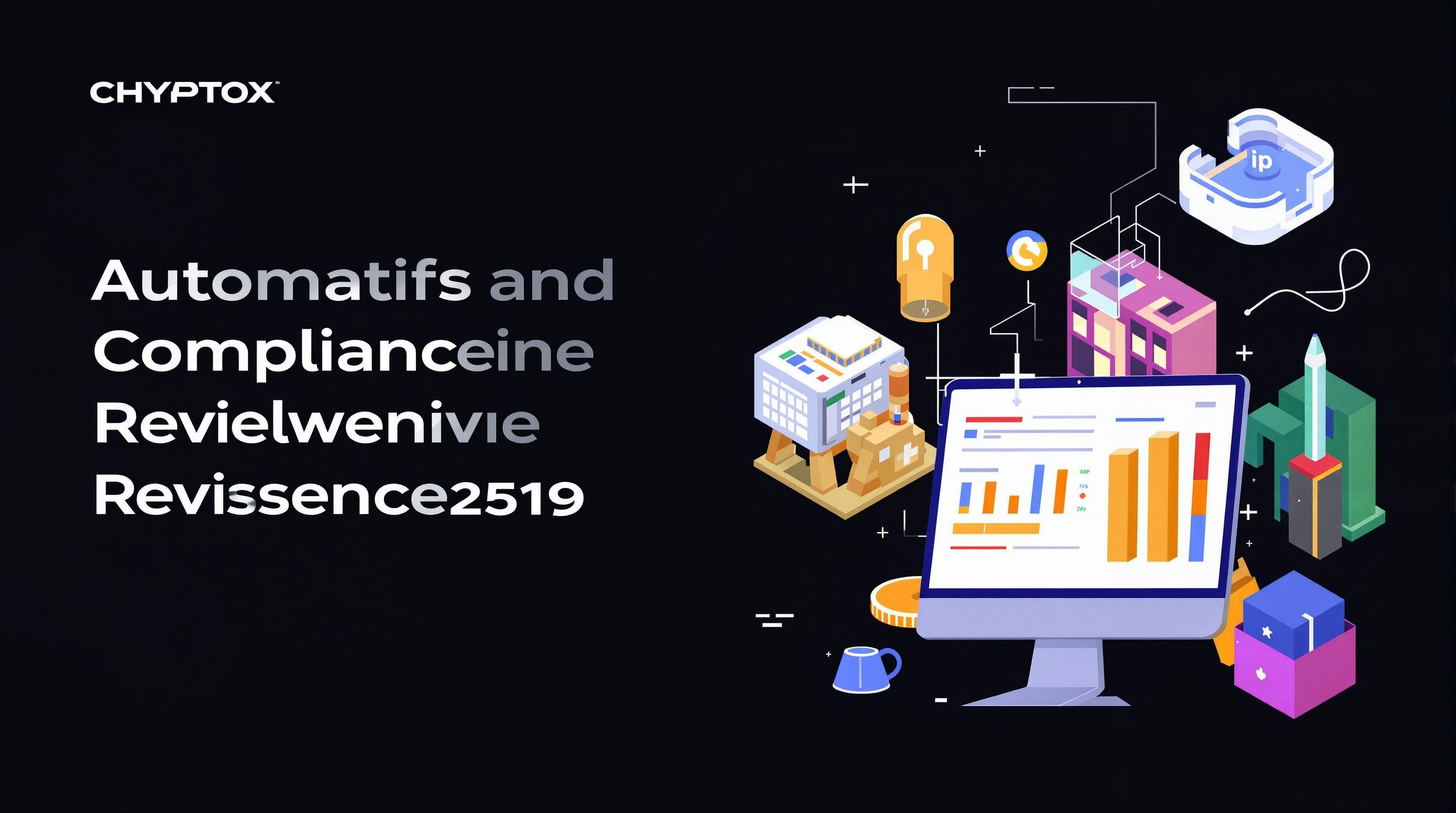Related Articles
- Top 8 Trailblazing Low-Code Platforms from the Past Five Years Revolutionizing App Development Efficiency
- Top 6 SaaS UX Innovations Since 2019 That Outsmart Legacy Giants in User Workflow Mastery
- How Forgotten Protocols in Legacy Systems Challenge Modern Digital Authentication Practices
- Unveiling the Role of Corporate Storytelling in Shaping Employee Adherence to Ethics and Compliance Standards
- 5 Next-Gen Digital Collaboration Apps from 2019-2024 That Transform How Teams Connect and Create
- The Unexpected Environmental Impact of Subscription Models: How Recurring Payments Influence Sustainable Consumer Choices
7 Innovative Cloud-Based Compliance Tools From the Last 5 Years Transforming Corporate Risk Strategies
7 Innovative Cloud-Based Compliance Tools From the Last 5 Years Transforming Corporate Risk Strategies
Cloud-based compliance tools have revolutionized how companies manage risk, blending innovation with efficiency. From AI-driven analytics to blockchain verification, these seven standout solutions are reshaping corporate risk strategies in unprecedented ways.
Understanding the Shift: Why Cloud-Based Compliance Tools Matter
Imagine the corporate world without the digital revolution in compliance—chaotic, slow, and riddled with errors. Traditional compliance methods often leave companies vulnerable to regulatory pitfalls, costly fines, and reputational damage. That’s where cloud-based compliance tools enter the fray, offering scalability, real-time updates, and automation.
One industry report noted that 89% of enterprises adopting cloud compliance platforms saw a significant reduction in audit preparation time (Gartner, 2022). With regulations evolving rapidly, relying on static, on-premise systems is no longer viable. The dynamic nature of cloud-based tools ensures businesses not only stay compliant but proactively manage risks.
The Rise of Artificial Intelligence in Compliance
The first tool to spotlight is AI-driven compliance platforms. Imagine an intelligent assistant that sifts through mountains of regulatory data, highlighting salient points and predicting risk exposure before it spirals. Companies like ComplyAdvantage have leveraged machine learning to scan global sanctions lists and flag suspicious activities instantly.
This AI integration is a game-changer. In 2021, a financial services firm reported a 40% decrease in false positives related to transaction monitoring after implementing AI tools, saving thousands of man-hours annually (Forrester Research, 2021). By automating complex data analysis, firms mitigate operational risks more effectively than ever before.
Blockchain and the Immutable Audit Trail
Enter blockchain technology, the guardian of transparency and integrity in compliance documentation. Deloitte’s 2020 survey found that 55% of organizations experimenting with blockchain cited improved auditability as a primary benefit.
With blockchain, every regulatory action, from policy updates to transaction approvals, is recorded on an immutable ledger. This ensures data tampering becomes virtually impossible, boosting trust between audit teams, regulators, and stakeholders. For example, IBM's blockchain solution has been successfully deployed to oversee supply chain compliance, reducing fraud by 30% within the first year (IBM Case Study, 2023).
Conversational Insight: How SMEs Thrive with Cloud Compliance
“At first, we thought cloud compliance was just for the big players,” confesses Maya, a risk manager at a mid-sized healthcare startup. “But tools like RiskCloud made us rethink everything. With real-time dashboards and automated alerts, we caught a potential HIPAA breach early and avoided a hefty fine.”
This narrative illustrates a broader trend: small and medium enterprises (SMEs) embracing sophisticated solutions once considered out of reach. RiskCloud, for example, offers scalable cloud compliance modules tailored for industries with complex regulatory landscapes—healthcare, finance, and manufacturing included.
The democratization of compliance technology empowers organizations of all sizes to embed risk management deep into their operations rather than treating it as an afterthought.
RegTech Platforms: The Swiss Army Knives of Compliance
Regulatory Technology (RegTech) firms have exploded onto the scene over the past five years, melding cutting-edge software with compliance expertise. Take for instance, Onfido which specializes in identity verification powered by AI and biometrics—a critical compliance aspect for customer onboarding in banking.
These platforms consolidate multiple regulatory facets—KYC (Know Your Customer), AML (Anti-Money Laundering), continuous monitoring—into unified dashboards. This integration not only streamlines workflows but also fortifies defenses against evolving cyber threats. The World Economic Forum highlighted RegTech as pivotal in reducing compliance costs by up to 30% while increasing accuracy (WEF Report, 2022).
Case Study: A Retail Giant’s Transformation with Cloud Tools
Consider a retail conglomerate forced to comply with multiple jurisdictions’ consumer protection laws. Previously mired in paperwork and delayed reporting, they adopted NAVEX Global’s cloud-based platform two years ago. Within 18 months, their risk team reported 50% faster incident resolution times and a dramatic drop in compliance breaches.
Such outcomes spotlight the tangible benefits of cloud compliance—speed, accuracy, and adaptability. NAVEX Global’s threat intelligence and policy management tools also enabled the retailer to spot emerging risks proactively, avoiding potential damage.
Humor Break: The Compliance Officer’s Dream Toolkit
Picture this: a compliance officer’s desk, once a jungle of files, now equipped with a cloud-based AI that not only flags issues before the boss does but also brews coffee! Okay, maybe not the last part yet—but with tools like LogicGate’s Risk Cloud, automation brings a bit of magic to mundane tasks.
LogicGate’s platform uses no-code workflow automation, letting compliance teams build custom processes without heavy IT involvement. The result? Faster response times and fewer headaches. As one cheeky LinkedIn reviewer put it, “My compliance anxiety has decreased by 75%, and my coffee consumption has gone up—coincidence? I think not.”
Why Real-Time Monitoring Is Non-Negotiable
In today’s fast-paced regulatory environment, waiting weeks for compliance reports is like trying to predict the weather a month from now—it just doesn’t work. Real-time cloud monitoring, as offered by tools such as MetricStream, enables organizations to spot risks as they happen.
Real-time data analytics facilitate timely decision-making, which is crucial to avoid regulatory penalties. The Ponemon Institute found that companies with continuous compliance monitoring reduced breach costs by an average of $2.5 million compared to those without (Ponemon Institute, 2023). Staying ahead means not just reacting, but anticipating risks.
Security and Scalability: The Pillars of Modern Compliance Tools
For businesses, the fear of cloud security can be a real roadblock. However, advances in encryption, multi-factor authentication, and zero-trust architectures mean cloud compliance tools are often more secure than legacy systems.
Moreover, scalability allows enterprises to ramp up compliance efforts during high-risk periods without significant infrastructure investments. This elasticity is especially important for industries facing seasonal regulatory scrutiny or rapid expansion. Cloud-native providers like Microsoft Azure and AWS offer robust compliance certifications ensuring clients' trust remains intact.
Looking Ahead: The Future of Compliance Technology
With the constant evolution of AI, blockchain, and data analytics, the next decade will bring even more sophisticated cloud compliance innovations. Imagine automated negotiation of compliance clauses via smart contracts or predictive compliance that stops violations before they happen.
For businesses, staying vigilant and adaptable is key. Those embracing cloud compliance tools now position themselves not just as rule followers, but masters of risk strategy—turning uncertainty into competitive advantage.
Statistics Recap and Final Thoughts
To summarize: companies using cloud-based compliance tools report up to a 50% reduction in compliance costs, 40% faster risk detection, and significantly improved audit readiness (Deloitte, 2023). These impressive figures underscore why innovation in this space isn’t just beneficial—it’s essential.
Whether it’s an AI analyst, blockchain ledger, or a no-code workflow engine, each tool contributes uniquely to a robust corporate risk strategy. As Gabriel, a seasoned cultural anthropologist once said, “To understand a system, immerse yourself in its stories and tools”—and these cloud compliance tools are telling a story businesses can’t afford to ignore.




